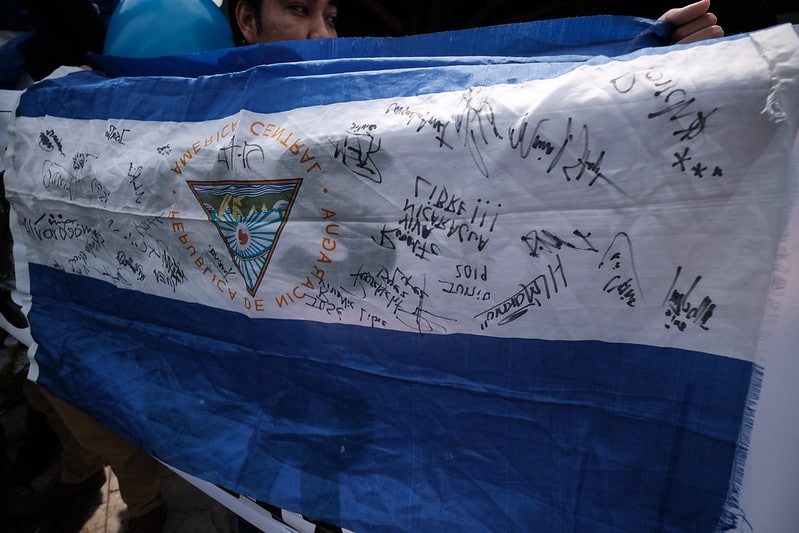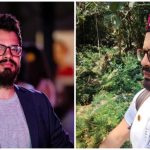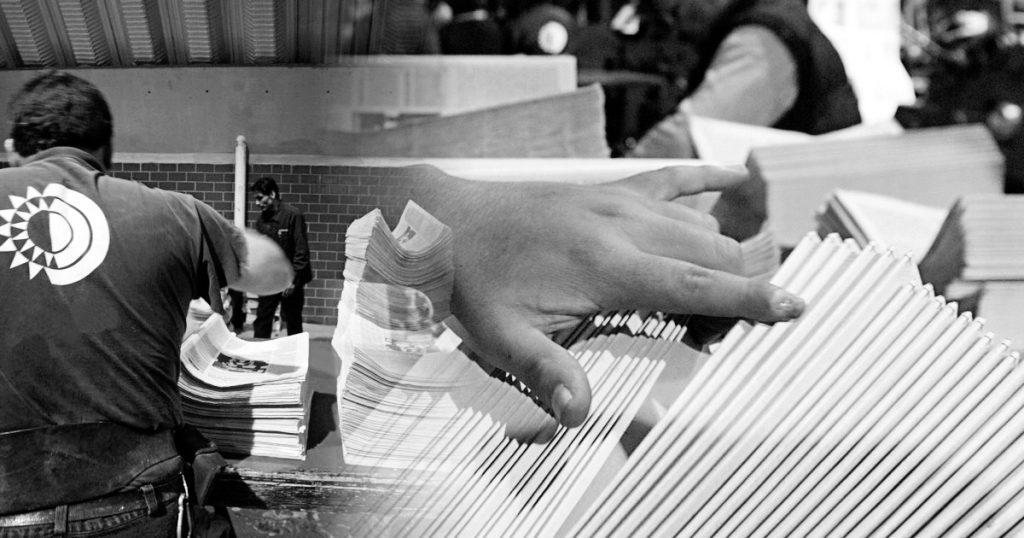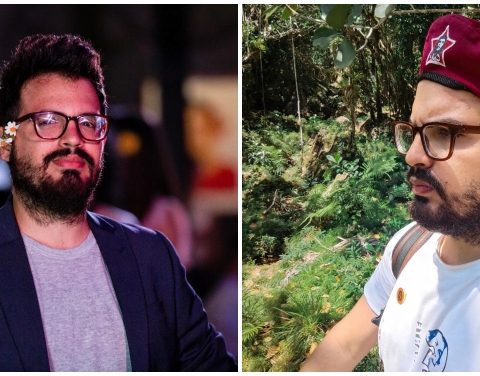Daniel Ortega will begin on January 10, 2022 a fourth consecutive term “without legitimacy”, after a reelection without political competition, which isolates him even more from an international community that demands a dialogue to establish electoral reforms that allow new presidential elections without political prisoners, competitive, fair and transparent.
However, the Ortega regime has only outlined a hollow offer of dialogue in the mouth of the sanctioned deputy of the Sandinista Front, Wálmaro Gutiérrez, who announced that there would be a “dialogue” after the re-election of Ortega and his wife and vice president Rosario Murillo.
“After we, as an organized people, win the elections, this November 7, a great national dialogue opens, where everyone will fit,” said Gutiérrez in the hemicycle of the National Assembly on October 12, when he also patented that it would be an exclusive “dialogue”, under the conditions of the FSLN and with the interlocutors that Ortega decides.
“If big capital wants to join us in this effort, welcome, how good. President Ortega has already said so, ”added Gutiérrez, leaving the opposition out.
For their part, opposition organizations in exile and diaspora alike maintain that “there are no conditions” for a dialogue with the regime.
On December 7, a month after the electoral farce, More than 35 Nicaraguan diaspora, exile and opposition organizations categorically reject the possibility of a dialogue with the regime, which would be forging after January 10, once Ortega once again “hands over” the presidential sash to himself, as has happened since 2012, when he was reelected, breaking (first) the constitutional locks and imprisoning (now) political and electoral competition in 2021.
From San José, Costa Rica, representatives of these organizations indicated that “there have never been conditions” to dialogue with the ruling couple, that they will not dialogue with a “murderous” and “illegitimate” regime and that the regime cannot be “oxygenated” as long as they exist. in addition, more than 160 political prisoners.
Unite, reorganize, and pending self-criticism in opposition
In the same way, the opposition carries several challenges, such as unity, the urgent reorganization and the self-criticism from which it seems to continue to avoid, while in Nicaragua the spaces for struggle are extinguished, with self-censorship and silence exhausting the options of civic resistance.
The former opposition deputy currently in exile, Eliseo Núñez, estimates that a good start was the roadmap signed last October by various groups. However, he admits that there is a long way to go in a fight against Ortega that has become timeless.
For Dr. María Asunción Moreno, an expert in Criminal Law and also in exile, this “is the moment” so that all “opposition organizations, who believe in democracy, must have a frank, sincere and direct dialogue, with the purpose of seeking an agenda that should be directed to confront the Ortega Murillo regime in order to truly create an option in Nicaragua that allows us to confront the regime ”.
But nevertheless, in an opinion piece published on December 15, at CONFIDENTIAL, the political scientist Silvio Prado, warned that “the same disagreements would be reissued, among other reasons, because no one feels responsible for the previous failure.”
“To date – he wrote – none of the people who were the protagonists of the fiasco have publicly assumed their mistakes, neither their arrogant poses nor their exclusive outbursts” and, he continued: “as long as they don’t they will not be able to recognize that they can no longer be interlocutors or facilitate new understanding processes ”.
Prado suggested that “those who do not have a broad mentality as a result of the lessons learned from such a traumatic experience” should step aside “and that,” without serious self-criticism, in which the parties acknowledge their share of responsibility for the failure of the unitary efforts of 2021, it will be difficult to overcome the zero-sum logic in which many of the opposition protagonists were locked up ”.
For Prado, it is not about “making a clean slate, but rather capitalizing on good and bad experiences that are still fresh.” That is, “it is about understanding something as simple as that no one can win separately if not all win.”
Ortega, meanwhile, showed how, once again, he started his old fraud machine.
The ratification of the FSLN files
With its sights set on the November 7 vote, the Ortega and Murillo regime arranged all its pieces for months until it put the political opposition in check. He reformed the Electoral Law, appointed and ratified electoral magistrates of his party, imprisoned candidates for the Presidency and only allowed the participation of “candidates” according to his needs. There was no tower that saved their opponents and on the eve of the voting, the Ortega left checkmate.
The desire for a fair and transparent electoral process in Nicaragua was stoned six months before the general votes. When, on May 4, 2021, the National Assembly –controlled by the Ortega y Murillo regime– approved electoral reforms tailored to the president and appointed as magistrates of the Supreme Electoral Council (CSE) known militants of the Sandinista National Liberation Front (FSLN).
The day after being elected, the new magistrates called general elections and established a period of six days to present the request for an alliance of political parties, when in the 2016 elections the deadline was 70 days. The haste did not surprise the ruling Sandinista Front, which, contrary to the opposition, registered its political alliance without major setbacks.
Elimination of competition
All the powers of the State participated in the elimination of political competition. Police –on the eve of the registration of presidential candidates– arrested 40 union leaders, businessmen, human rights defenders, peasants and journalists; among them the presidential candidates: Cristiana Chamorro, Arturo Cruz, Félix Maradiaga, Juan Sebastián Chamorro, Medardo Mairena, Miguel Mora and Noel Vidaurre.
The argument was that they were supposedly being investigated for “treason against the fatherland”, within the framework of the “Sovereignty Law”, and the Public Ministry ended up accusing them of the crimes of “conspiracy to undermine national integrity” and “laundering of money”. And all these processes are still open and they are still incarcerated, although none have been convicted.
Similarly, the CSE manipulated the electoral calendar to block possible opposition electoral alliances and stripped the Conservative Party (PC), the Democratic Restoration Party (PRD) and Citizens for Freedom (CxL) of their legal status. The first to announce that he would not participate in the elections and the other two –that were considered the vehicles of the opposition– through political tripping.
The PRD was canceled because a group of evangelical pastors, who did not even belong to the party, expressed to the Electoral Tribunal their dissatisfaction with the management of the Reverend Saturnino Cerrato, legal representative of the organization. While CxL was canceled because the president of the Constitutionalist Liberal Party (PLC), María Haydée Osuna, denounced that her main contender had violated the “Sovereignty Law” without specifying what was the punishable act.
Opposition imprisoned or in exile
When the political parties were disqualified and their potential candidates jailed, the social movements united in the National Coalition (CN) and the Civic Alliance for Justice and Democracy (ACJD) began to disintegrate, some in exile, others in safe houses. and many silenced before the repressive escalation and persecution in Nicaragua.
The opposition organizations that still remain in Nicaragua, in silence and in hiding to avoid persecution, take care to keep their network of contacts alive. They assure that at this moment the fight is to preserve freedom, reorganize and devise a strategy to continue confronting the Ortega and Murillo regime.
With seven presidential candidates imprisoned and an opposition jailed, persecuted, exiled or silenced due to the resurgence of the de facto police state, imposed after the 2018 citizen protests, the Sandinista National Liberation Front (FSLN) was accompanied by an entourage of five parties politicians who pretended the “normality” of a multiparty electoral process, despite the lack of guarantees and political competition, playing the role of “stilt walkers”, as they are known in Nicaraguan political culture.
Votes marked by abstention
The low turnout in the November 7 voting was such that the only crowds occurred when the voting centers still did not open their doors, before 7:00 am There were no lines because the population did not go out to vote. The independent and multidisciplinary observatory Urnas Abiertas registered an abstentionism of 81.5%.
The abstentionism contrasted completely with the data of the Supreme Electoral Council – controlled by the Ortega regime – which in its reports established this line at only 35% and assigned Ortega and Murillo 75.87% of the percentage of votes in these irregular elections, arguing that more than 2.9 million citizens, of those registered in the electoral roll, voted in favor of the continuation of the dictator and his wife.
Thus, the CSE proclaimed Daniel Ortega for a fourth consecutive presidential term, the second together with his wife and vice president, Rosario Murillo; and a bench of 75 deputies from the Sandinista Front in the National Assembly, thus confirming the absolute control of Ortega in both powers of the State.
In the final list of elected officials, the CSE removed from the Nicaraguan Christian Way party the only deputation it had been assigned the day after the voting and transferred the legislative seat to the Independent Liberal Party. The change occurred after the president of CCN and former presidential candidate, Guillermo Osorno, denounced that the November 7 votes were fraudulent and acknowledged that his party did not control even 10% of the 3106 Voting Centers (CV) enabled at the level. national.
In addition to the 75 Sandinista deputies, the National Assembly will be made up of ten legislators from the Constitutionalist Liberal Party (PLC), two from the Nicaraguan Liberal Alliance (ALN), two from the Independent Liberal Party (PLI), one from the Alliance for the Republic party (APRE) and one the Yatama regional party.

















